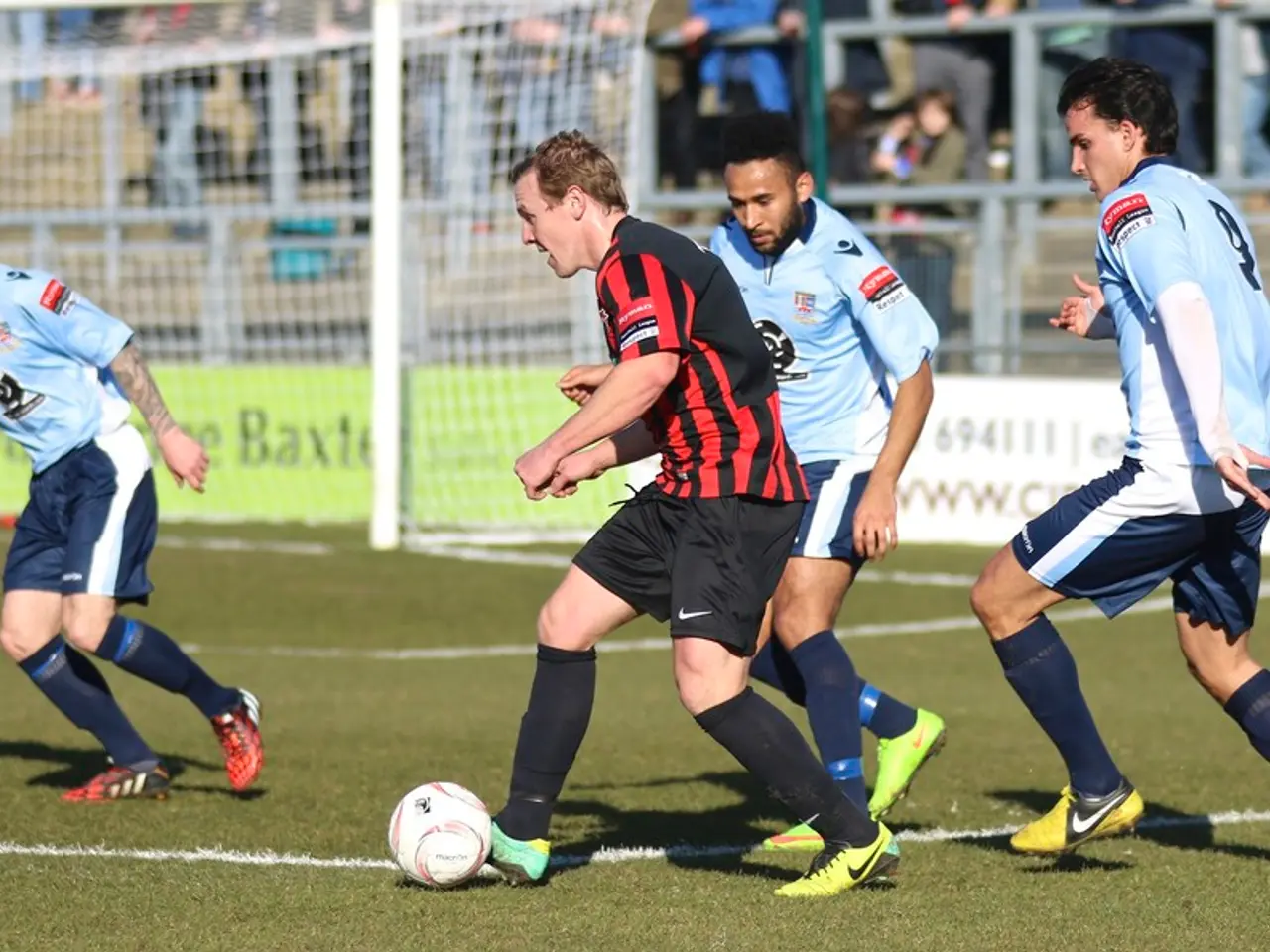Gay footballer Urban, as detailed in his book, supports same-sex partnerships in Germany's Bundesliga
In an excerpt from the book "Human Football Star," printed by the Bild newspaper, former professional footballer Marcus Urban shares his insights into the challenges faced by gay players in Germany's male football scene.
At 54 years old, Urban, who played for Rot-Weiß Erfurt, became the first German professional male footballer to come out as gay. He suggests that one day, these hidden gay couples might come out, but the journey remains complex.
Urban highlights the internal pressures and fears as the primary obstacles, rather than external factors like fans or media, which are becoming less hostile. He emphasizes that the main challenge lies in the "internal climate" — the fears of the players themselves and those around them. This creates a network of silence, with some players using fake girlfriends or marriages to hide their sexual orientation, often orchestrated by agents or intermediaries who profit from this secrecy.
This contrasts sharply with progress in women's football, where openly gay players are more accepted and visible. However, the male game is historically burdened by a culture of homophobia and stereotypes of masculinity, which remain deeply ingrained despite societal advances. Urban also points out that the pressure to constantly maintain a façade can be overwhelming, leading some players to quit before reaching full professional status.
Other contributing factors include the longstanding taboos around homosexuality in men's football culture, the lack of high-profile openly gay players, and the covert arrangements that agents and clubs sometimes perpetuate, despite not openly opposing homosexuality.
Urban continues to advocate for more professional footballers to come out about their sexuality, hoping to achieve the same level of boredom where everyone can openly discuss their personal relationships, as is common in women's football. Despite his attempts to come out as gay on a football team being unsuccessful, he mentions the existence of gay couples in the Bundesliga.
The issue was brought into the spotlight recently when former Wolfsburg player Kevin Behrens caused controversy by refusing to sign a rainbow-colored jersey and making a homophobic remark. Behrens later apologized for his comments.
Urban finds it contradictory that being a lesbian in women's football is usually no longer a problem, while it is for men. He believes that there are attractive gay couples in the Bundesliga and that homophobic statements are a significant reason for the hesitation of footballers to come out.
Despite the challenges, Urban remains optimistic and continues to work towards creating a more open and accepting environment in German football.
In the male football scene of Germany, some players still feel pressured to hide their sexual orientation, often using fake relationships or marriages to maintain the façade, as suggested by former professional footballer Marcus Urban. This contrasts with the growing acceptance of openly gay players in women's football, underscoring the ongoing battle against homophobia in men's sports like football.








